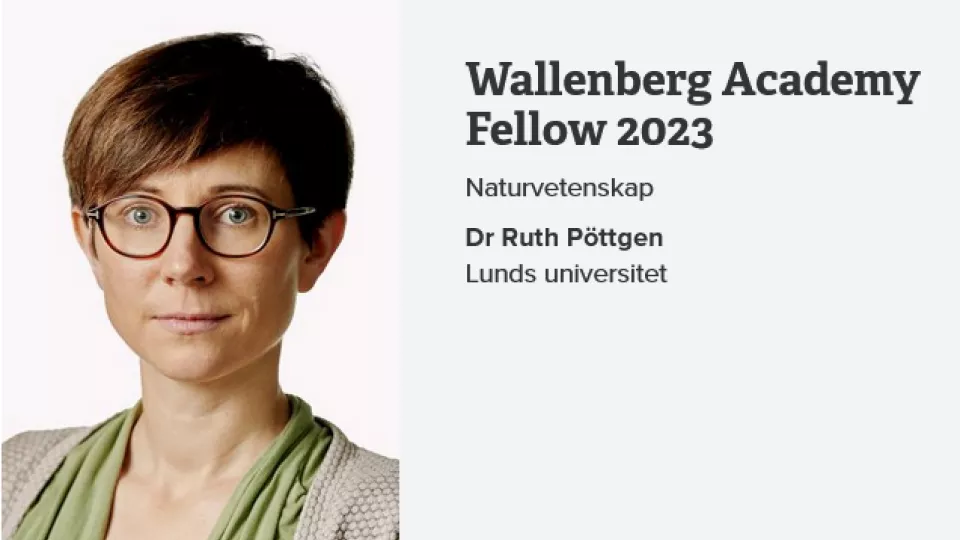Congratulations Ruth, how does it feel to receive this award?
- Thank you so much! It feels wonderful. There was a long process and so many good candidates, so I feel honoured to have been selected.
How big is the grant?
- It's 1.8 million SEK per year for five years from the foundation, and then the university contributes the same amount, so it's a total of 18 million SEK for five years.
What are you going to investigate in your project?
- It's about the dark matter in the universe. We know that it exists and that there is even five times as much dark matter as ordinary matter, but so far we don't know what the building blocks, or particles, are. In this project, together with colleagues in Lund and the United States, I will build and conduct a new experiment to look for a new type of such particles, namely particles that are much lighter than those that most experiments look for.
How will you go about it?
- The idea is to shoot an electron beam at a beam target and measure the behaviour of the electrons after they leave the target. If you measure many, many electrons very carefully, you should be able to see if dark matter has possibly been produced by the interaction of the electrons with the target.
If we solve the mystery of dark matter, what will it mean for science?
- It would mean that we have found the answer to an almost century-old question at the interface between cosmology and particle physics. This in turn means that we will have a much better understanding of our universe and how it has come to be as it is today. It is almost impossible to predict what more we will learn if we finally find the dark matter particles.
Presentation of Ruth Pöttgen on the Wallenberg Foundation website.


